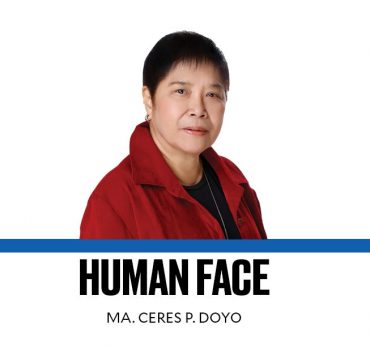Rx for PhilHealth: A new chief

It just might be the shot in the arm that the Philippine Health Insurance Corp. (PhilHealth) needs to regain consciousness on the proper and efficient handling of funds from the premium payments of its 62.24 million members.
On Tuesday, President Marcos named Dr. Edwin Mercado president and chief executive officer of the state health insurance firm that, in recent months, has descended into chaos following several budget controversies, among them the zero subsidy from the government, and the transfer of P60 billion of its unused funds to the national treasury. In October 2024, the Supreme Court issued a temporary restraining order to stop the finance department from further impounding P29.9 billion of PhilHealth’s money amid claims that the agency has at least P500 billion in reserve funds.
Mercado replaced Emmanuel Ledesma Jr., whose six-year term as PhilHealth chief started in July 2023 and marred by a string of controversies.
Mercado’s appointment was announced just as the high court was hearing oral arguments on the pending transfer of more PhilHealth funds to state coffers that petitioners have described as “unconstitutional” and a “murder” of universal health care (UHC) as embodied in Republic Act No. 11223.
“The murder of universal health care is happening before the eyes of the Filipino people, orchestrated and executed by the very government that should be safeguarding their right to health,” said former undersecretary for Population and Development Dr. Juan Antonio Perez III, one of the petitioners.
Skimpy health benefits
The petitioners also argued that the impounded P60 billion in PhilHealth funds could have gone to UHC programs to benefit more indigent Filipinos. Lawmakers have meanwhile asked why, with such huge reserves of funds, is PhilHealth providing skimpy health benefits to its members, while failing to address its outstanding financial obligations to health-care workers, hospitals, and other institutions?
Hopefully, the change in PhilHealth leadership would provide answers, said several senators who warmly welcomed Mercado’s appointment. Mercado “can breathe new life into the state health insurer that needs healing itself,” noted Sen. Grace Poe.
Senate President Pro Tempore Jinggoy Estrada even expressed relief that the new PhilHealth chief is “not a politician,” who’d make decisions based on political accommodation and exigencies.
Mercado, an orthopedic surgeon trained in the United States, has been vice chair of the Ayala-owned Mercado General Hospital Inc. since 2021. The health care firm behind the Qualimed Health Network has a national chain of medical facilities that includes four general hospitals, six multispecialty clinics, two surgery centers, 150 primary care corporate clinics, and a 400-strong team of practicing physicians.
Management skills
While that reflects a laudable record of sustained profitability, Mercado’s particular challenge here is to prove himself above possible conflict of interest. He should sever his ties with his former bosses in the private sector, while still maintaining a well-run professional relationship with them.
The medicine graduate of both the University of the Philippines (UP) and Harvard Medical School also has an executive master’s in health-care administration from the University of North Carolina. This mix of medical background and management skills could significantly help run an agency notorious for making dubious deals with allied health-care facilities, while welching on the verified claims of its hospital members.
Mercado, who was a resident doctor at the Philippine General Hospital, has also worked with the Department of Health and the Zuellig Family Foundation, and was a faculty lecturer and guest lecturer at the Ateneo School of Medicine and Public Health and the UP College of Public Health, respectively.
The Harvard Medical School’s website noted that Mercado has studied health economics and delivery models in line with the universal health care law, which he worked on with PhilHealth.
Systemic corruption
Mercado’s words and politics are just as reassuring: “Seeing the sufferings of (Filipinos) who cannot afford proper health care, it has been my objective to see how I can help create a more equitable health system,” he said in a profile interview in September 2020.
“Ironically, we export the most nurses and doctors overseas of any country, yet we cannot take care of ourselves,” he added.
As PhilHealth grapples with systemic corruption—and faces the prospect of losing P29 billion in revenue, no thanks to House Bill No. 11360 that seeks to lower the excise tax rates on tobacco and vape products—the state insurer can certainly use a second opinion and fresh eyes to treat the chronic malaise infecting it.
Which means that Mercado has ample opportunities to provide a cure and sustainable treatment to the ailing agency by ensuring an efficient, reliable, and accessible universal health care for all Filipinos.
We can only wish the new PhilHealth chief well in such a daunting task for which, fortunately, he seems to be uniquely equipped to handle.




















